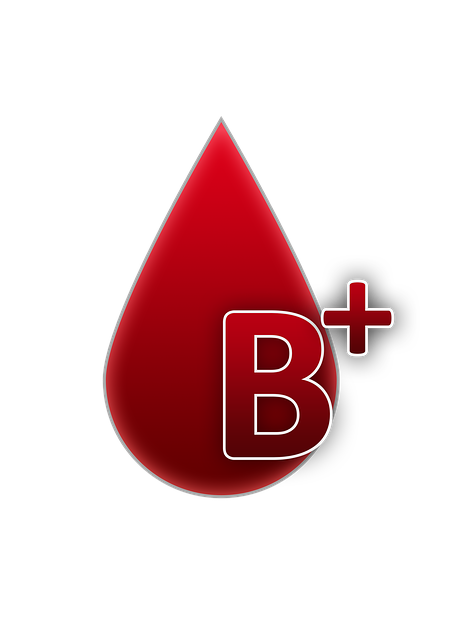Cholesterol blood tests are crucial for personalized healthcare, as they detect imbalanced cholesterol levels that can lead to heart disease. The test identifies LDL ("bad") cholesterol above 100 mg/dL and HDL ("good") cholesterol below 60 mg/dL as risks, enabling early interventions like lifestyle changes or medication. Regular testing guides tailored care plans, empowering individuals to optimize cardiovascular health through proactive management.
In today’s world, understanding your cholesterol levels is paramount for personalized health care. The silent killer, often overlooked, can have profound impacts on overall well-being. This article delves into the significance of a cholesterol blood test, exploring its ability to unveil hidden risks and guide tailored healthcare decisions. From deciphering test results to advanced testing techniques and navigating personalized care plans, we empower you with knowledge for proactive health management.
- Understanding Cholesterol: The Silent Killer and Its Impact on Health
- Why Get a Cholesterol Blood Test? Unveiling Personalized Healthcare
- Decoding the Test Results: What Do the Numbers Mean?
- Expert Cholesterol Testing: Advanced Techniques for Accurate Readings
- Navigating Personalized Care Plans: Lifestyle Changes and Medical Interventions
Understanding Cholesterol: The Silent Killer and Its Impact on Health
Cholesterol, often thought of as a villain in our bodies, is actually a necessary substance for optimal health. It plays a crucial role in building cell membranes and producing hormones. However, when cholesterol levels become imbalanced, it can lead to serious health issues. High levels of low-density lipoprotein (LDL) cholesterol, commonly known as “bad” cholesterol, can accumulate in the walls of arteries, forming plaque and narrowing them over time. This condition, atherosclerosis, increases the risk of heart disease and stroke—the leading causes of death worldwide.
Regularly getting a cholesterol blood test is essential for early detection and management of these risks. A simple cholesterol blood test measures the levels of LDL, high-density lipoprotein (HDL) or “good” cholesterol, and total cholesterol in your blood. These results provide valuable insights into an individual’s cardiovascular health status, allowing for personalized healthcare strategies to be implemented, such as lifestyle changes or medical interventions, if needed.
Why Get a Cholesterol Blood Test? Unveiling Personalized Healthcare
Cholesterol levels are a significant indicator of cardiovascular health, making the cholesterol blood test an essential tool in personalized healthcare. By analysing a simple blood sample, medical professionals can uncover valuable insights into an individual’s overall well-being and risk factors for heart disease. This preventive measure allows for early detection of high cholesterol, which is often asymptomatic but can lead to serious complications if left unmanaged.
Personalized health care is about understanding the unique needs of each patient. A cholesterol blood test plays a pivotal role in this approach by providing tailored information. It helps identify individuals who may require lifestyle changes or even medication to manage their cholesterol levels effectively. This proactive step towards better health empowers people to make informed decisions, reduce risks, and take control of their cardiovascular destiny.
Decoding the Test Results: What Do the Numbers Mean?
Understanding your cholesterol blood test results is a crucial step in taking control of your health. The numbers provided give valuable insights into your cardiovascular health, highlighting potential risks or strengths. Total cholesterol levels are typically measured in milligrammes per decilitre (mg/dL). Optimal levels should be below 200 mg/dL, indicating good heart health. However, anything between 200-239 mg/dL is considered borderline high, and above 240 mg/dL requires immediate attention.
LDL (Low-Density Lipoprotein), often termed ‘bad’ cholesterol, should be kept under control. Levels below 100 mg/dL are ideal as they reduce the risk of heart disease. Conversely, HDL (High-Density Lipoprotein) or ‘good’ cholesterol, levels above 60 mg/dL are protective against cardiovascular issues. A high ratio of LDL to HDL can signal an increased risk of plaque buildup in arteries, while a healthy balance suggests lower chances of developing heart conditions.
Expert Cholesterol Testing: Advanced Techniques for Accurate Readings
Expert cholesterol testing involves advanced techniques designed to deliver precise and actionable results, offering personalized health care solutions. These sophisticated methods go beyond traditional blood tests, utilizing cutting-edge technology to analyze various cholesterol types—LDL, HDL, and triglycerides—with unparalleled accuracy. By delving into these detailed readings, healthcare professionals can uncover hidden risks and tailor recommendations for lifestyle adjustments or medication.
Such advanced cholesterol blood tests provide a comprehensive view of cardiovascular health. They help identify individuals who may be at elevated risk for heart disease despite normal overall cholesterol levels. Armed with this information, folks can make informed decisions to foster heart health, ensuring they’re not just managing numbers but truly optimizing their well-being.
Navigating Personalized Care Plans: Lifestyle Changes and Medical Interventions
Navigating personalized care plans involves a comprehensive approach, especially when addressing cholesterol levels. After receiving results from a cholesterol blood test, healthcare professionals can offer tailored recommendations. These may include lifestyle changes such as adopting a healthier diet, increasing physical activity, and managing stress. Such modifications can significantly impact cholesterol profiles, making them key components of any personalized healthcare plan.
In cases where lifestyle adjustments alone are not sufficient, medical interventions may be necessary. Healthcare providers might suggest medications to help manage cholesterol levels or refer patients to specialists for further care. Regular monitoring through periodic cholesterol blood tests is crucial to assess the effectiveness of these changes and make informed decisions about future treatments.
A cholesterol blood test is a powerful tool in navigating personalized healthcare, providing insights into heart health that can guide lifestyle changes and medical interventions. By understanding your cholesterol numbers and working with experts in cholesterol testing, you can take control of your well-being and reduce the risk of cardiovascular disease. This tailored approach to healthcare empowers folks to make informed decisions about their health, ultimately fostering a vibrant and healthy life.
